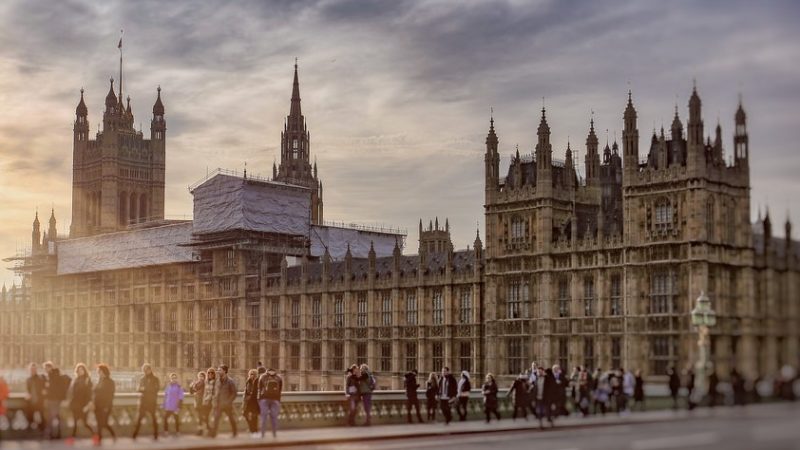'There is no charter of people’s rights and parliament is weak and unable to hold government to account.'

Prem Sikka is an Emeritus Professor of Accounting at the University of Essex and the University of Sheffield, a Labour member of the House of Lords, and Contributing Editor at Left Foot Forward
Whether it’s Brexit, contracts for cronies, homelessness, poverty, hungry school children, police corruption, illegal wars or the prorogation of parliament, the UK continues to tumble from one crisis to the next.
There is no charter of people’s rights and parliament is weak and unable to hold government to account. Constitutional reforms are urgently needed and ought to be the centrepiece of the next general election campaign.
Reform is needed at every level. The first-past-the-post electoral system ensures that the political party without the support of the majority of the electorate enjoys a large majority in the House of Commons.
Big parliamentary majorities produce elected dictatorships and enable the government to ride roughshod on parliament and people. In the current parliament, all too often scrutiny of major Bills is curtailed and ministers rarely provide meaningful answers to questions. We all remember how the Conservative administration illegally prorogued parliament in September 2019.
Ministers routinely violate ministerial codes that govern standards of ministers’ behaviour, award multi-million pound government contracts to their friends and deprive parliament and public of the information to hold them to account. A weak parliament has been unable to hold government to account.
Monied interests have long shaped political power in the UK, though a few crumbs are occasionally thrown to the masses to pacify them. Big business and wealthy elites fund political parties. Grateful parties keep legislation they find threatening off the political agenda even though it costs the public purse billions. Governments dutifully bailed out banks and provided £895bn of quantitative easing to the City speculators. Vital services such as gas, water, electricity, railways, buses, social care have been handed over to corporations and the National Health Service (NHS) is on the table. Rather than providing public services, the state has become a guarantor of corporate profits.
These are the rewards for the elites who delivered the 2007-08 banking crash, bank frauds, and debacles at Carillion, BHS, Debenhams, London Capital and Finance, Patisseries Valerie, Silentnight and elsewhere. The same elites are adept at tax dodging and face little retribution. It is hard to recall any public petitions or marches which called for this huge transfer of wealth to such a small clique.
At the same time, people at work are struggling to make ends meet. In one of the wealthiest countries 14.5 million people in poverty, thousands of school children go hungry, too many live in poor housing and at 28% of average earnings retirees receive the lowest state pension amongst industrialised nations. Some 1.5 million homes are in water poverty, and another 3 million teetering. The political system has abandoned too many people.
Despite an annual salary of £82,000 plus expenses, too many MPs are consultants to corporations and promote the interests of their paymasters. Corporate interests are built-in the House of Lords too. It needs to be replaced by an elected chamber.
In the absence of a written constitution, people’s lives and rights are under threat. The government tried to prevent people from enforcing employment rights through tribunals by levying fees. The Supreme Court declared the ministerial edicts to be unlawful.
Even lives are under threat. The Covert Human Intelligence Sources (Criminal Conduct) Act 2021 enables the government to give advanced authorisation to selected state and non-state actors to commit criminal acts with total immunity. These include murder, torture, rape and everything else, because such acts are deemed to advance national security and economic interests of the UK. The innocent victims will have no recourse to courts.
Protests are the lifeblood for renewal of democracies. Rather than bringing governments closer to the people, the current government will criminalise protests. The 300 page Police, Crime, Sentencing and Courts Bill currently going through parliament would criminalise protests that are considered to be noisy and disruptive. Isn’t that the point of protests? How else can marginalised groups draw attention to their exclusion and grievances? Even one-person protests would be criminalised. Anyone causing ‘serious annoyance’ or ‘serious inconvenience’ faces prison sentence of up to ten years.
Stung by the 2019 Supreme Court judgment which declared the prorogation of parliament to be unlawful, the government has now tabled the Judicial Review and Courts Bill . It will chip away at people’s right to seek judicial reviews. It will put major government decisions beyond the reach of the courts and also enable the government to extend the scope of this ring-fencing without returning to parliament. No doubt, the government will promote the Bill by claiming that such powers are needed to prevent immigrants and asylum seekers from seeking judicial review of government decisions.
Constitutional reforms are urgently needed to prevent governments from riding roughshod over parliament and people. None of this is possible without a written constitution and fundamental changes to the electoral system, structure of parliament and funding of political parties.
Curbs on the power of corporations are needed and legislators must be prevented from being consultants to corporations. Citizens need to be empowered and a charter of people’s rights is needed. The ruling elites will not like the changes but a new social settlement between parliament, government and the people is long overdue.
To reach hundreds of thousands of new readers we need to grow our donor base substantially.
That's why in 2024, we are seeking to generate 150 additional regular donors to support Left Foot Forward's work.
We still need another 117 people to donate to hit the target. You can help. Donate today.



